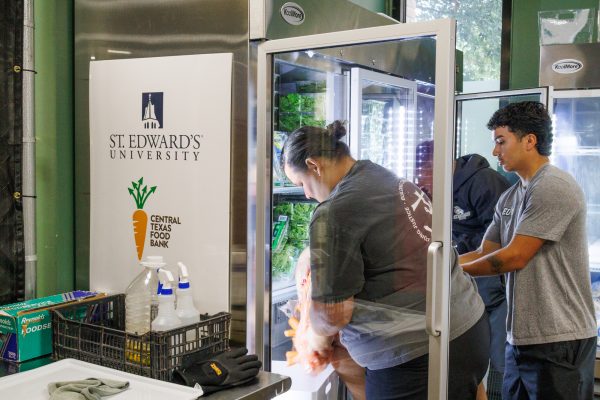Student Government reviewing its rules
The Student Government Association is reviewing its rules in an effort to strengthen the organization.
Chris Duke, vice president of Intergovernmental Affairs, introduced the Constitutional Convention Act of 2009, sponsored by Alex Simons, sophomore executive senator. The act, proposed on Sept. 10 and currently under review in the IGA committee, lists some two dozen amendments to the organization’s elections manual, bylaws and constitution. Duke said the implementation of an in-house accountability and review mechanism is by far the most important thing being discussed in SGA this semester, and even possibly this year.
Within SGA, class senators and committees would have the means to review their members and recommend those deemed to be underperforming to a review board. This action could in turn place the person in question in a probationary status, which would itself be subject to review. Members who consistently fail to meet SGA expectations, as established by a series of performance metrics, would be removed from the organization, and any scholarships awarded to those students would be revoked.
“We’re one of the very few chartered organizations [on campus] still that doesn’t do performance review,” Duke said.
A recall mechanism is also on the list of proposed amendments. Currently the only mechanism for removal of SGA officials is through impeachment, an in-house process. Implementing a recall mechanism would offer the student body a direct avenue to remove underperforming SGA members.
“If the student electorate thinks the Senate is not policing its own, then the students ultimately should have the responsibility and the authority to recall representatives,” Duke said.
Duke has also proposed the elimination of vote-holding new college and graduate school representatives. Barring some exceptions, he said it is an anomaly to even have these students interested and he claims that the seats have more often than not lain vacant during his time in SGA.
“If we can’t attract those different members, then I don’t see the problem with them being just students or associate members,” he said.
The act also features a proposal to increase the campaign spending caps for presidential and vice-presidential candidates from $200 to $500, and for senatorial candidates from $100 to $250. Candidates usually self-finance, but fundraising is allowed. Even though Duke said money doesn’t determine who will win a campaign, he wants to ensure candidates have access to as much money as possible. Duke himself raised the most funds of any candidate in last Spring’s elections.
“It not clear that there is a link between the amount of money spent and how successful you are,” Duke said. “But it is “pretty difficult to run a campaign with $200.”
Also suggested within the act is that the scopes of SGA’s involvement director, marketing director and finance director be fine tuned and specified to reduce the amount of work that overlaps between departments. It additionally suggests widening the scope of the Student Court of Appeals, to move beyond the image of a traffic court.
“It’s all about simplifying university services,” Duke said. “My hope is that we can create this one-stop shop where you can appeal traffic tickets, but also other things.”
Other proposals included re-allowing current high-ranking SGA members to endorse their peers in SGA for a candidacy, allowing for special referendums during the spring elections to be posed to the student electorate, making the elections commissioner an independent agency only responsible to student advisors, and developing a permanent endowment fund which would serve as a savings account for money raised privately by SGA. The fund would be complete with savings formulas to only allow for withdrawals following the completion of given savings goals.
Duke said he hopes to put a permanent, strong and flexible charter up to a vote soon, and that students will also, eventually, have a stake in the decision through a spring referendum to approve or disapprove of whatever SGA decides this semester.Information regarding the current SGA constitution and bylaws, as well as copies of bill passing through SGA, meeting agendas and committee minutes can be found at stedwards.collegiatelink.net. Current students should use their SEU usernames and passwords to sign in. IGA committee meetings are open to the public. SGA meetings are Thursdays at 7 p.m. in the Mabee Ballroom.










